This does sound exciting. Innovative! Using the internet to watch lectures, and never having to listen to a boring lecture in class again.
There are problems with this model, in my opinion, that I won't go into, but it is interesting to me that this idea is seen as innovative, even ingenious. When I was in school, I would generally have to read a chapter in my textbook before class and answer some questions about it. This would prepare me for class the next day where we would normally have a class discussion and work on projects. At least in junior high and high school, I didn't have a lot of straight "lectures" where I sat and listened and did nothing else.
Reading is being cut out of the equation in this new "flipped" model. Textbooks can be dry, but there are an awful lot of well-written textbooks nowadays that are not (I'm serious). Even more importantly, there is fabulous nonfiction available on almost every subject that can open up entire vistas, entire worlds you'd never thought of before.
Imagine if your child came home from school with this book:
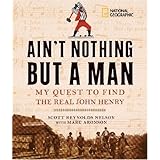
Aint Nothing But a Man: My Quest to Find the Real John Henry by Scott Reynolds and Marc Aronson
It's the true story of a man setting out to find out if John Henry was more than just a legend, and he discovered that he was. It's really a fascinating book (a great one for the dinner table!), and if your child read it for homework and came back to class the next day to a fascinating discussion about what life was like when they were building the great continental railroads, how a man like John Henry could rise up from the dust, and why a legend about him would have been passed down for generations, wouldn't they be engaged and involved. They'd just done some serious mental work reading this great book, examining the pictures, looking at the sidebars, and now they could come discuss all the thoughts that had been floating through their mind as they read with the class.
Imagine it!
Now imagine your child coming home and getting on the internet and listening to his teacher talk about John Henry and the Transcontinental Railroad. Then he goes to class the next day and answers a bunch of questions with a group of kids. Maybe they do a project. What would be more engaging?
When I think of all my history classes I took in college, I remember very little. There are entire classes I remember NOTHING about, but the classes I remember the most were the classes where we read books, fiction and nonfiction, having to do with that time in history. Some of my favorites—change-my-life-favorites—were
To Destroy you is no Loss: The Odyssey of a Cambodian Family by JoAnn Criddle
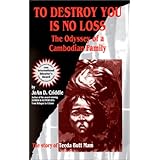
Silence by Shasaku Endo
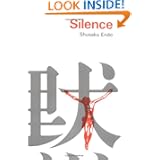
And Red China Blues: My Long March from Mao Till Now by Jan Wong
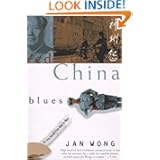
Why? Why do I remember these books and almost none of my teachers' lectures? Because while I read those books, I was transported to a different place. I lived another life. I had an entirely different life experience that I would never have had otherwise, and I never forgot it.
That happened to me when I recently read this:
Between Shades of Gray by Ruta Sepetys.
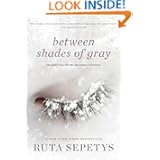
After reading this book, I have a feeling, an understanding now, of what it might have been like to have lived in a Siberian Work Camp. To lose everything and be completely powerless. I could never have that feeling from a lecture about Siberian Work Camps. I could never have that feeling, at least not nearly as strong, from watching a movie about Siberian Work Camps.
When we read, we are transported. We are taken to another place, another life, and we are changed when we are done. That's why we read, and that's why reading should never be taken out of the classroom. Even classrooms so cool they are flipped.
While I agree that books do not need to go away, I've seen some great interactive software that allows kids to really explore the world around them and to have even more resources, including books at their finger tips. I don't think books will go anywhere in a flipped classroom. Textbooks are changing and there are some great ones through Apple on the ipad that explore topics like science and history. You get to see the concepts you are taught in action, and it is much easier to be engaged and understand. You get excellent lectures from the scientists that actually do the research. Great stuff.
ReplyDeleteBut like you said, I think story is the way to bring the humanities and history really home to people.